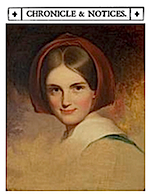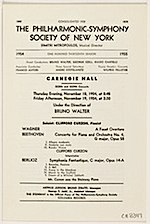Saturday, February 12, 2011
By DEB OLIN UNFERTH [from Guernica] A few years ago, when I began writing a memoir, I read piles of them to get a feel for the genre. I read the older “autobiographies,” where the author tries to cover every event in his or her life. The modernist autobiographies are especially good: Paul Bowles, in his dry, witty manner, writes Without Stopping as a Leviticus-style document of every person he met, place he visited, and conversation he had. (My own father’s father wrote such a book and left it for us when he died: he lists every parking ticket, baseball game, and tank of gas, with, sadly, little mention of my father.) Gertrude Stein, in a brilliantly subversive way of sidestepping the problem of having to describe herself, writes her wife’s autobiography, The Autobiography of Alice B. Toklas—which turns out to be a hilarious biography of Stein written by Stein.

In the final decades of the twentieth century, the autobiography transformed, as writers began to see the disadvantages of writing blanket summaries of their lives and comprehensive lists of events: the messiness involved in such a project, the inevitable incompleteness, the necessary lack of an arc (if one was going to be honest). Continue reading “Connecting Proust’s madeleine to Lenny Bruce’s ‘memoir-rant’.” »
Friday, February 11, 2011

Charlotte Cushman, by Thos. Sully.
By MONTANA WOJCZUK [from Lapham’s Quarterly] – Charlotte Cushman was one of America’s first superstar actresses. Walt Whitman had written rapturously of her roles as a young theater critic for the Brooklyn Eagle. In 1846 he proclaimed “the towering grandeur of her genius” writing,
“Miss Cushman assuredly bears away the palm from them all, men and women.” In the golden age of American theater this was no mean feat, but Charlotte Cushman was no ordinary actress. She became famous for playing “breeches parts,” men’s roles like Hamlet and Romeo, for which she competed with the most famous actors of the day.
Cushman’s Romeo, with her sister as Juliet, had unprecedented success in England and her Hamlet and Macbeth drew both men and women to the stage door, arms laden with flowers. One woman declared that Cushman was “a very dangerous young man.” Continue reading “Charlotte Cushman: ‘a woman who played the man’. And won.” »
Friday, February 11, 2011
 By JUDITH HARRIS [The Montserrat Review] – Importance is defined as something of weight or value; of being significant and noteworthy; the emphasis on something being important is how it is consequential, with respect to what comes after it as an outcome or development. Reed Whittemore has always been important, and surprising. In fact Whittemore begins his own biography of William Carlos Williams, Poet from Jersey, by writing about the geography, albeit a winding one:
By JUDITH HARRIS [The Montserrat Review] – Importance is defined as something of weight or value; of being significant and noteworthy; the emphasis on something being important is how it is consequential, with respect to what comes after it as an outcome or development. Reed Whittemore has always been important, and surprising. In fact Whittemore begins his own biography of William Carlos Williams, Poet from Jersey, by writing about the geography, albeit a winding one:
The Passaic River, which this book is to be about, shares with the Hackensack River lightly to its east the responsibility for having created the Jersey meadows.
Continue reading “William Carlos Williams’ biographer turns his attention to a poet named ‘R’.” »
Thursday, February 10, 2011
From an interview with Priya Pandya by ARTON GJONBALAJ [Cavalier Literary Couture] – A: Where does Bollywood dance originate?
P: Storytelling—through dance—has been a part of India’s rich culture dating back centuries. Classical Indian dances, such as Bharatanatyam and Kathak, originated in the temples as an artistic way of conveying religious tales and epics. Folk dance styles such as Bhangra originated as a way of passing time in the fields of Northern India while harvesting crops.
Continue reading “Dancing down Bollywood boulevard.” »
Thursday, February 10, 2011
The remaining four events in the Royal Institute of Philosophy’s London Lectures Series have been scheduled. All lectures start at 17.45 in the J Z Young Lecture Theatre, Anatomy Building, Gower Street, London. The talks last an hour, followed by half an hour of questions. The Institute’s lectures are free and open to the public, who are advised to arrive early to be sure of a seat.
Continue reading “Events: Robert Grant, John Hyman, Anthony O’Hear, Kendall Walton conclude the London Lecture Series.” »
Wednesday, February 9, 2011
By STAN CAREY [Sentence first] – In the 1970s the independent book publisher André Deutsch sold 40% of his eponymous company to Time-Life. Diana Athill, who edited for André Deutsch, wrote a wonderful memoir Stet: An Editor’s Life in which she described the experience as odd and comic: “They made no attempt to intervene in any of our publishing plans. And they drove André mad.”
Continue reading “For André Deutsch, Time-Life wasted the former and made misery of the latter.” »
Tuesday, February 8, 2011
 By NORA O’DONNELL [Chicago Magazine] – Something nagged, however—perhaps a reflex picked up from working the flea market circuit as a poor kid growing up on the West Side of Chicago. Though he knew almost nothing about photography, he eventually returned to the box and started looking through the negatives, scanning some into his computer. There was a playfulness to the moments the anonymous artist had captured: a dapper preschool boy peeking from the corner of a grimy store window; an ample rump squeezing through the wooden planks of a park bench; a man in a three-piece suit napping, supine, in the front seat of his car, his right arm masking his face from the daylight. Whoa, Maloof mused. These are really cool. Who took them?
By NORA O’DONNELL [Chicago Magazine] – Something nagged, however—perhaps a reflex picked up from working the flea market circuit as a poor kid growing up on the West Side of Chicago. Though he knew almost nothing about photography, he eventually returned to the box and started looking through the negatives, scanning some into his computer. There was a playfulness to the moments the anonymous artist had captured: a dapper preschool boy peeking from the corner of a grimy store window; an ample rump squeezing through the wooden planks of a park bench; a man in a three-piece suit napping, supine, in the front seat of his car, his right arm masking his face from the daylight. Whoa, Maloof mused. These are really cool. Who took them?
Continue reading “Enter Vivian Maier, finally out of the shadows.” »
By MICHAEL WOOD [London Review of Books] – The Coen brothers’ new film [True Grit] restores Mattie to the narrative; it gives her a voice-over and quotes her a lot. The actress who plays her (Hailee Steinfeld) and the designer who dressed her (Mary Zophres) get across a good deal more of the weirdness of this prematurely old child than Kim Darby in the earlier film could ever quite do, in spite of her consistent, energetic engagement with the part. Steinfeld’s long pigtails, too large hat, earnest stare and cautious articulate diction give her an eerie dignity, an authority undiluted by anything as tame as charm: this really is a performance.
Continue reading “The genial grit of John Wayne, the grittier grit of Jeff Bridges.” »

Wilton's.
DOES PRISON WORK comes off a bit better as a question than as a placard held by a man on the street. The answer to the question, which is older than Bentham, but like Bentham still nicely preserved, will be debated at Wilton’s on Tuesday evening 8 February 2011, at 7pm.
From The Times‘ own release:
Continue reading “Event: ‘Does prison work?’ Editor’s Choice debate in London.” »
By GERRY GARIBALDI [City Journal] – In my short time as a teacher in Connecticut, I have muddled through President Bush’s No Child Left Behind act, which tied federal funding of schools to various reforms, and through President Obama’s Race to the Top initiative, which does much the same thing, though with different benchmarks. Thanks to the feds, urban schools like mine—already entitled to substantial federal largesse under Title I, which provides funds to public schools with large low-income populations—are swimming in money. At my school, we pay five teachers to tutor kids after school and on Saturdays. They sit in classrooms waiting for kids who never show up. We don’t want for books—or for any of the cutting-edge gizmos that non–Title I schools can’t afford: computerized whiteboards, Elmo projectors, the works. Our facility is state-of-the-art, thanks to a recent $40 million face-lift, with gleaming new hallways and bathrooms and a fully computerized library.
Continue reading “Education’s most ‘intractable problem’? Lots of pregnant teenage schoolgirls.” »
Saturday, February 5, 2011
By EFRAIM ZUROFF [The Jewish Chronicle] – A financially-strapped small Eastern European country is spending tens of thousands of pounds to sponsor an extraordinarily large number of political and cultural events – lectures, concerts, exhibitions and films – in London next week. Why? That is the obvious question for the Lithuanian Foreign Ministry, several Lithuanian cultural institutions, and local UK partners.
Under the heading, No Simple Stories; Jewish-Lithuanian relationships: facing difficult questions, the events are projected as an honest attempt to address the ostensibly complex history of Lithuania’s once very large Jewish community, which was irreparably decimated during the Holocaust – 96.4 per cent of the 220,000 Jews who lived in Lithuania under the Nazi occupation were slaughtered, with the help of a large number of local collaborators.
Continue reading “Lithuanian Jews: Difficult questions for University College, simple answers from history.” »

.
[The New York Philharmonic Digital Archives] – The Archives collections contain material that dates back to the Philharmonic’s first concert in 1842, but the first phase of our digitization begins in the middle of this long history. In deciding where to begin with our digitization project, we held a roundtable discussion that included librarians, historians, musicians, conductors, journalists, and students to evaluate the different time periods in the Philharmonic’s history and to determine what might provide the most unique source material.
Continue reading “The Philharmonic attic, ‘from the letters of Presidents to the smallest scrap of paper’.” »
Thursday, February 3, 2011
By ROGER PENROSE [interviewed in The Times of India] – What is your opinion about many-universe theories? Doesn’t your new theory suggest multiple Universes?
I am not an enthusiast. There are several different theories of multi-universes. The one I am proposing is sequential. It’s a different scheme. You have multi universes from people who believe that the interpretation of quantum mechanics leads you to what is called the ‘many worlds’ theory, the Everett interpretation. There are many people who like that point of view because it seems to avoid having to contradict unitarity or the Schrodinger’s Equation, or whatever you like to say. I personally don’t think it’s a solution and I think it is not explaining the world that we see, which is what we are trying to explain. It is explaining a sort of hypothetical world in which things branch and we go off in different branches. I have trouble with that. Continue reading “Roger Penrose: Why we should take our universes one at a time.” »
Wednesday, February 2, 2011
By COLIN HENDERSON [The Bankwatch] – Some revealing and counterintuitive information.
Three other countries that leap out here are Algeria, Morocco, and Libya. However it is also interesting that Libya is the lowest in internet users. Does this mean they will be less likely to resist Ghadafi?
Continue reading “From Tunisia to Egypt: The digital dominoes of Araby.” »
Tuesday, February 1, 2011
By ANDREW FERGUSON [Commentary] – Tweets appear in the order they’re received, so I was able to work my way down my “timeline” to see what my Twitter comrades had been up to through the week. Here at the top was a tweet sent only seconds before from Michele Norris, the NPR host. “Chicago is so majestic,” she wrote. I was drawn up short. Chicago? Michele is in Chicago? I should mention that I don’t know Michele Norris. Continue reading “Why did NPR’s Michele Norris stop to tweet instead of running for the plane?” »

























